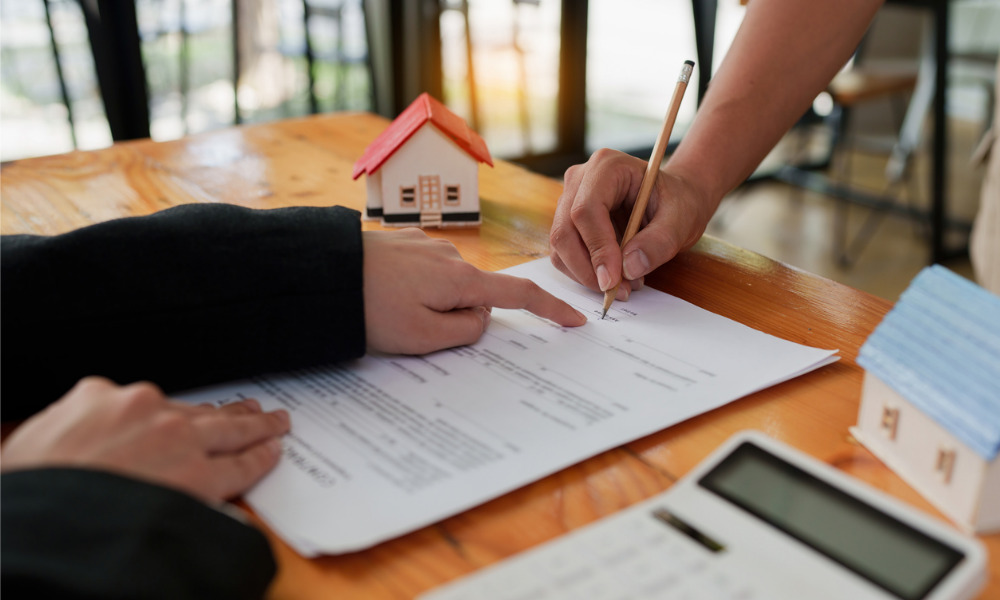What are closing costs in the UK? Here is everything you need to know before you move into your new home

Becoming a homeowner is one of the biggest decisions—and expenses—you can make in your life. Before the house keys change hands between seller and buyer, however, there is one last thing you need to do—pay closing costs. And they are often not insignificant.
While the closing costs are paid for by both the home buyer and the seller, most of these payments come from the buyer to numerous entities in the form of fees and taxes. It is therefore important to know what you are getting yourself into so you can budget for it.
But what are closing costs? How much are closing costs in the UK? And what are the more common closing costs?
Here is everything you need to know.
What are closing costs?
Closing costs are extra fees that you, the home buyer, must pay at the end of the home-buying process. Closing costs, such as legal fees, and other one-time expenses associated with the purchase of a property can add up. Therefore, it is important that you factor these costs into your budget.
The term closing cost refers to the transaction that takes place when the property title is officially transferred from the home seller to the home buyer. During this closing period, the taxes and fees that came from the purchase are assessed. In other words, the closing cost pays for everything that went into the real estate transaction, above and beyond the purchase price.
Closing costs: An estimate
It is common for many first-time home buyers to underestimate the amount they will need to pay toward closing costs. Most buyers in the UK will have to budget between 3% and 5% of the purchase price of a resale property to pay for the closing costs. This means, for instance, that a home valued at less than £250,000 will require roughly £6,000 in closing costs for many first-time home buyers—which is not insignificant, especially after the amounts you have spent to reach that point.
Keep in mind, however, that these are estimates. The amount you will have to pay could be higher (or lower), depending on various external factors such as where you live, the type of property you are purchasing, or if it’s a newly built construction.
What are common closing costs?
Closing costs vary depending on the price of the property, whether you have a mortgage, are buying through an agent or privately, or have employed a solicitor or another professional like a surveyor. However, there are common closing costs that you can expect to pay whether you are buying a home or selling one in the UK.
Here is a quick look at common closing costs in the UK:
- Stamp duty land tax
- Solicitor’s or licensed conveyancer’s fees
- Valuation
- Survey
- Land registry fees
- Mortgage indemnity guarantee
- Arrangement or acceptance fee
- Lender’s legal fees
- Buildings insurance
- Removal costs
- Running costs
Let’s take a closer look at each to give you a better idea of what they are and how they add up.
1. Stamp duty land tax
If you are purchasing a home that costs more than £60,000, you will have to pay a property tax, which is called a stamp duty land tax.
Stamp duty is not payable on fixtures and fittings, or chattels, like carpets, light fittings, curtains, garden ornaments, and kitchen appliances—essentially, anything moveable—which might be included in the purchase price. Remember: you can legally buy the fittings and fixtures separately, which is advisable if it will drop the price below either the threshold of £250,000 or £500,000 and therefore saving you roughly £5,000 in either case.
When it is suspected that the buyer has overvalued fittings and fixtures fraudulently to dip below a stamp duty threshold, Inland Revenue investigates sales under the £250,000 and £500,000 thresholds.
2. Solicitor’s or licensed conveyancer’s fees
While there is no definitive charge, you should allow for 0.5% to 1% of the purchase price of the property for solicitor’s or licensed conveyancer’s fees. Some conveyancers do, however, charge a fixed fee. While these fees usually include searches, they may be charged separately as disbursements, which often includes Land Registry fees.
3. Valuation
Before a lender will offer you a home loan, you must pay for the valuation of the home, even if you decide not to go ahead with the transaction. It is important to research the valuation cost in advance since it often varies, depending on the value of the home and the lender.
4. Survey
Especially if you are purchasing an older property, you should have a homebuyer report or a full structural survey conducted. A homebuyer report is a review of the condition of the home, along with the valuation, and cost roughly £250 for a property valued at £100,000.
A full structural survey, on the other hand, is usually far more detailed and costs about £350 for a property valued at £100,000, depending on the surveyor, the property, and the contents of the report. If combined with the valuation from the lender, the homebuyer report or structural survey should be less costly.
5. Land registry fees
Land registry fees are payable every time a home is sold and the change of owner is recorded in the Land Register. Depending on whether the land is registered, the land registry fee can vary. Most properties in England and Wales are registered. Meanwhile, land in Scotland is registered in the General Register of Sasines or the Registers of Scotland. In Northern Ireland, it is the Land Registers of Northern Ireland. Depending on the value of the home, there is a sliding scale of charges.

6. Mortgage indemnity guarantee
If you can borrow above a certain loan-to-value (LTV) ratio—which, depending on the lender, can vary—you usually must take out a mortgage indemnity guarantee. An MIG is also called a mortgage risk fee or a high lending fee.
An MIG protects the lender in the even that you are unable to pay off the mortgage and the lender must repossess and sell the home. If, for example, you borrow over 70% or 80% of the value of the home, many lenders in the UK will insist that you take out an MIG. Some lenders have, however, dropped an MIG on home loans as high as 90% of the property’s value.
7. Arrangement or acceptance fee
Typically paid when you apply for a mortgage or when you accept a mortgage, the arrangement or acceptance fee usually costs anywhere from £150 to £400.
8. Lender’s legal fees
While some lenders may waive this fee, a lender’s legal fee typically costs around £300 on a property with a value of £100,000.
9. Buildings insurance
From the time that the contracts are exchanged, it is a condition of lenders that the home is fully insured against structural damage in the form of buildings insurance.
10. Removal costs
While not necessarily a fee, per se, removal costs, i.e., the cost of moving house, should be accounted for when purchasing a home and should also include insurance against loss or damages. Removal costs can be up to £500 for moving the contents of a standard three- to four-bedroom home.
11. Running costs
While not necessarily built into closing costs, standard running costs are important to budget for before moving into your new home, and in the UK, include the following:
- Buildings insurance
- Contents insurance
- Council tax
- Garden and pool maintenance
- General maintenance, including any essential work that needs doing immediately
- Ground rent and service charges for a leasehold apartment
- Management fees (if you let the property)
- Mortgage protection insurance
- Standing charges for utilities (water, telephone, gas, electricity)
Typically, annual running costs are about 2% to 3% of the cost of the home.
Price reductions are among a number of indicators that the UK housing market is cooling. In January, mortgage approvals dropped to their lowest levels since May 2020 https://t.co/KhvmXb8CIU
— FT Weekend (@ftweekend) March 15, 2023
How much are closing costs in the UK?
In the UK, closing costs (also called total fees payable or completion costs) when purchasing a property are among the lowest in the world—between 3% and 5% of a home valued under £250,000. The average closing costs for first-time home buyers are roughly £6,000, which includes conveyancing and other solicitor’s fees, as well as stamp duty, survey fee, and removals.
Most fees associated with the closing cost are calculated as a percentage of the cost of the home, meaning the more expensive the property, the higher the fees. If you have a large house, for instance, even the removal costs will be higher. Regardless of whether you are buying a home or selling one, you should consider the cost of both transactions first.
One important note is that there are many fees associated with a mortgage, but if you are a cash buyer, your fees will likely be lower. Additionally, the fees that come with selling a property or buying one are not tax deductible in the UK.
The closing costs are essentially the final transaction before the seller hands over the keys to the buyer. While the price of the costs varies widely, they are usually significant enough that you should budget for them beforehand. Before committing yourself to getting your mortgage, do your research, such as checking in on what the best mortgage lenders in your area can do for you.
Have experience with closing costs? Let us know in the comment section below.



